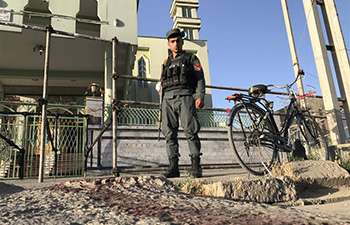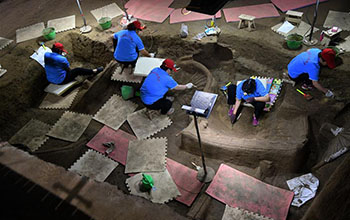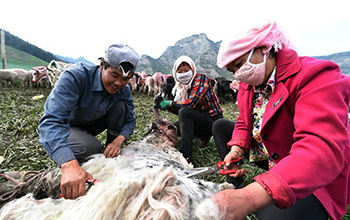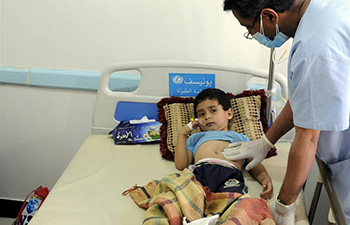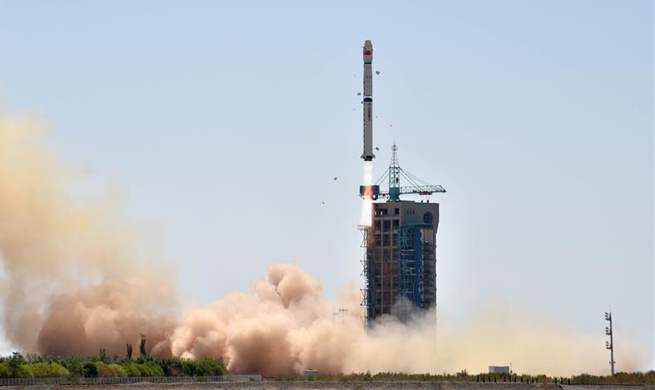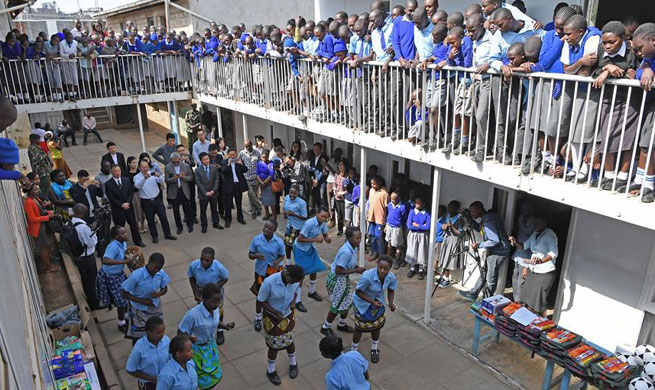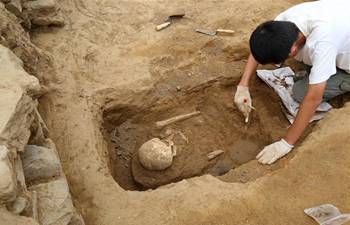By Jessica Washington
SYDNEY, June 16 (Xinhua) -- An Australian doctor has created the world's first screening test for high risk influenza, in an international medical breakthrough that predicts which flu patients are at risk of contracting deadly influenzas.
The test is a "game-changer," according to Dr. Benjamin Tang, who felt compelled to conduct the research after the 2009 swine flu outbreak, which claimed hundreds of thousands of lives.
Often high risk patients have flu-like symptoms, meaning doctors could easily send these patients home, without realizing the severity of their condition, Tang said.
Tang, who conducted the study for the Westmead Institute for Medical Research, told Xinhua on Friday that his experiences on the front-line working as a doctor at Nepean Hospital in Sydney prompted him to devise a method to identify at risk patients.
"Influenza can sometimes kill otherwise healthy people in the prime of their lives. Many of the swine flu patients were so sick, they ended up in intensive care and needed to be put on life support," Tang said.
"I discovered that many of them had been turned away elsewhere, and the reason their sickness was not identified was because they displayed cold-like symptoms. There were no warnings as to how sick they would get."
The High-Risk Influenza Screen Test (HIST) requires only a drop of blood to predict, with around 90 percent accuracy, which patients are at risk of deadly secondary infections, and identifies how sick a patient is likely to get.
"Current tests only check if the virus is present in your airways, but they don't tell you how your body or immune response will react to the virus," the University of Sydney Associate Professor of Medicine said.
"I thought to myself, if we can come up with a way to identify these patients in advance, we could prevent their subsequent deterioration. We could get in there early, so they wouldn't deteriorate to the point where they require life support."
The respected medical professional devoted five years of research to "eavesdropping on the immune system," to "de-code" the way the body's natural disease-fighting systems react in the immediate stages of contracting a life-threatening infection.
Early detection is the key to saving lives, Tang said, before the immune system breaks down and the patient's illness can escalate into serious complications, or worse, death.
"The bottom line is that doctors can identify really sick patients early on, before they develop severe symptoms. It allows doctors to identify high risk patients, and get to them early."
There are up to 500,000 influenza-related deaths every year around the world, according to the World Health Organization, with pregnant women, young children, and the elderly among those most at risk.
Tang hopes the new testing system can help hospitals around the world manage their patients more systematically, so that "when the next pandemic hits the world," doctors will know who needs to be admitted.
The screening system will soon undergo cost benefit tests, to assess its suitability for the public healthcare system, but the learned researcher is hopeful his work will have positive ramifications for health around the world.
"I think it is a game-changer. It will change how doctors manage their patients in the future," Tang said.
"There's nothing else in the world like it and I hope this is the beginning of similar work by other researchers."




